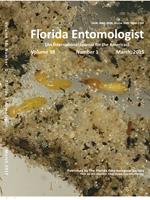Previous molecular operational taxonomic unit (MOTU) survey work with diplogastrid dauers from the abdominal glands of adult female soil-dwelling andrenid bees in Turkey had suggested commensal relationships between species of the genus Andrena and a new species of Koerneria and several species from an unidentified nematode clade near “Mononchoides” (based upon comparisons with GenBank at the time). We used reverse taxonomy on dauer nematodes from Andrena optata from Turkey to successfully culture, morphotype, and sequence adult nematodes that fully matched Pristionchus maupasi and one of the MOTUs previously isolated as dauers from the abdominal glands of A. limata and A. flavipes, and previously designated as belonging to the clade near “Mononchoides.” This study demonstrates the value of reverse taxonomy for resolving MOTU identification issues as the depth of the reference sequence database increases and successful cultures or environmental samples of adults are made available for morphotypic and genotypic comparisons. In addition, it has helped expand our knowledge of the potential host range and biogeographical distribution of P. maupasi which was originally thought to be relatively host specific on scarab beetles, and has raised questions about the chemical ecology of dauers for this species in the wild.
How to translate text using browser tools
1 March 2015
Reverse Taxonomy Reveals Pristionchus maupasi (Diplogasterida: Diplogastridae) Association with the Soil-Dwelling Bee Andrena optata (Hymenoptera: Andrenidae) in Turkey
Canan Hazir,
Natsumi Kanzaki,
Baris Gulcu,
Selcuk Hazir,
Robin M. Giblin-Davis

Florida Entomologist
Vol. 98 • No. 1
March 2015
Vol. 98 • No. 1
March 2015
abeja
Andrena optata
asociación nematodo-insecto
bee
comensalismo
commensalism
dauer




